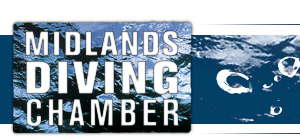
Carbon Monoxide (CO) poisoning is thankfully on the decrease in the UK. This is mainly to do with improved gas plumbing and more catalytic converters in vehicle engines. However it is still one of the commonest causes of death and morbidity in the home.
Carbon Monoxide binds to haemoglobin in red blood cells at the sites usually utilized to carry oxygen to the tissues, but does so about 240 times more tightly than oxygen, forming a compound called carboxyhaemoglobin. This means that if both Carbon Monoxide and oxygen (O2) are inhaled, Carbon Monoxide will preferentially bind to haemoglobin. This reduces the amount of haemoglobin available to bind to oxygen, so the body and tissues become O2 starved.
There are a number of other mechanisms of toxicity from Carbon Monoxide. Blood vessel (vascular) injury from Carbon Monoxide has been demonstrated to result from CO-induced production of nitric oxide-derived oxidants and cellular injury from activated white blood cells (neutrophils). This has the direct effect on the blood vessels of the body - causing them to become 'leaky'. This is seen especially in the brain, causing the brain to swell, leading to unconsciousness and neurological damage. Carbon Monoxide also causes direct central nervous system cellular injury through mechanisms that include disturbance of energy metabolism and intracellular production of oxygen free radicals.
Hyperbaric Oxygen (HBO) is the treatment of choice for Carbon Monoxide poisoning in the following cases:
- All pregnant females
- Where there are neurological problems
- Where there are cardiac consequences of CO poisoning
- Where there has been loss of consciousness
Treatment must be initiated within 6 hours of the time of poisoning.
Anyone suspected of suffering from Carbon Monoxide poisoning should proceed immediately to a hospital Accident & Emergency (A&E) department.
All cases for Carbon Monoxide poisoning treatment must be referred to us from an A&E department.
Further information on CO poisoning can be found on the NHS Website.
| 


